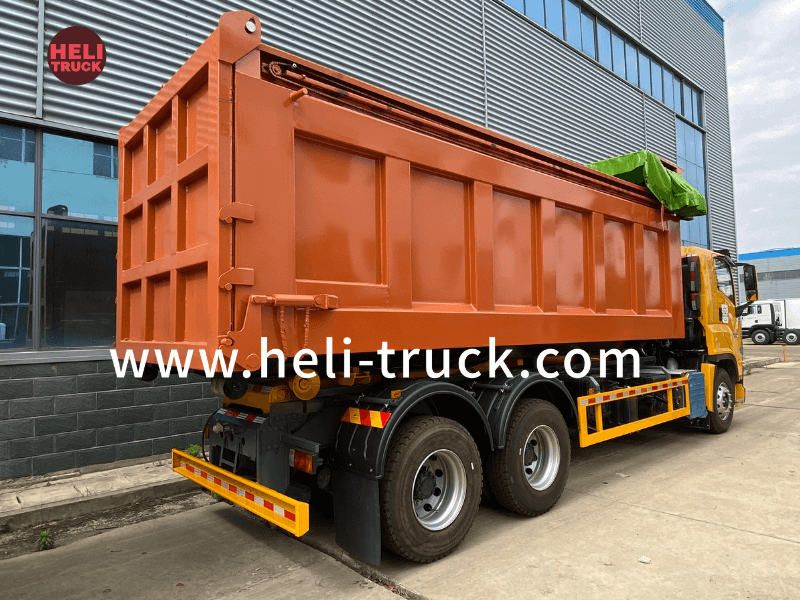Introduction
Garbage compactor trucks play a crucial role in waste management systems worldwide. These specialized vehicles are designed to collect, compress, and transport solid waste efficiently. One of the key considerations in the design and operation of garbage compactor trucks is their weight. The weight of these trucks has implications for various aspects, including performance, safety, and environmental impact. In this article, we will delve into the world of garbage compactor truck weight, exploring its significance and the factors that influence it.
Understanding Garbage Compactor Trucks
Before we delve into the weight aspect, let's first understand what garbage compactor trucks are and how they function. Garbage compactor trucks, also known as refuse compactors or waste compactors, are specially designed vehicles used for collecting and transporting solid waste. These trucks are equipped with a compaction mechanism that compresses the waste, allowing for more efficient storage and transportation.
There are various types of garbage compactor trucks, including rear loader, front loader, side loader, and compacting trailer units. Each type has its unique features and is suitable for different waste collection scenarios. Regardless of the type, all garbage compactor trucks share the common goal of optimizing waste collection and disposal processes.
The Importance of Weight in Garbage Compactor Trucks
The weight of a garbage compactor truck is a critical factor that influences its performance and efficiency. The weight of the truck affects several aspects, including:
1. Payload Capacity: The weight of the truck itself impacts its payload capacity, which is the maximum amount of waste it can carry. A heavier truck may have a lower payload capacity due to weight restrictions and safety considerations.
2. Compaction Efficiency: The weight of the truck influences the compaction efficiency of the compactor mechanism. A heavier truck may exert more pressure on the waste during compaction, leading to better compaction rates and increased storage capacity.

3. Stability and Safety: The weight distribution of the truck plays a crucial role in its stability and safety during operation. An improperly weighted truck may be prone to tipping over or losing control, posing risks to both the operator and the surrounding environment.
4. Fuel Efficiency: The weight of the truck impacts its fuel efficiency, with heavier trucks typically consuming more fuel per mile. Optimizing the weight of the truck can help reduce fuel costs and minimize environmental impact.
Factors Influencing Garbage Compactor Truck Weight
Several factors influence the weight of a garbage compactor truck, including:
1. Chassis Type: The type of chassis used in the construction of the truck significantly impacts its weight. Different chassis materials, such as steel or aluminum, have varying densities and strength properties that affect the overall weight of the truck.
2. Compaction Mechanism: The design and materials used in the compaction mechanism of the truck also contribute to its weight. Heavy-duty components may add to the overall weight but can enhance the durability and performance of the compactor.
3. Additional Features: Garbage compactor trucks may be equipped with various additional features, such as hydraulic systems, safety devices, and onboard scales, which can add to the weight of the truck. These features are essential for improving operational efficiency and safety but must be balanced with weight considerations.
4. Regulatory Requirements: Regulatory standards and weight restrictions imposed by local authorities or transportation agencies play a significant role in determining the maximum allowable weight of garbage compactor trucks. Compliance with these regulations is essential to ensure road safety and environmental protection.
5. Waste Density: The density of the waste being collected also influences the weight of the truck. Heavier or denser waste materials require more compaction force, which may impact the weight of the truck during operation.
https://www.heli-truck.com/water-tank-truck/ of Garbage Compactor Truck Weight
The weight of garbage compactor trucks has several implications, both positive and negative, on waste management systems and the environment. Some of the key implications include:
1. Operational Efficiency: Optimal weight management of garbage compactor trucks can improve operational efficiency by maximizing payload capacity and compaction rates. Well-designed trucks that balance weight considerations with performance requirements can enhance waste collection processes.
2. Environmental Impact: The weight of garbage compactor trucks directly impacts their fuel consumption and carbon footprint. Lighter trucks with efficient design features can help reduce emissions and minimize environmental impact during operation.
3. Road Safety: Overweight garbage compactor trucks pose risks to road safety by increasing the likelihood of accidents, road damage, and traffic congestion. Adhering to weight limits and proper weight distribution is essential for ensuring safe and smooth operations on public roads.
4. Cost Considerations: The weight of garbage compactor trucks influences maintenance costs, fuel expenses, and overall operational expenses. Efficient weight management strategies can help reduce costs and improve the economic viability of waste management operations.
Conclusion
Garbage compactor truck weight is a critical factor that significantly impacts their performance, efficiency, and environmental footprint. By understanding the importance of weight in garbage compactor trucks and the factors that influence it, waste management professionals can make informed decisions to optimize truck design and operation. Balancing weight considerations with performance requirements, regulatory standards, and environmental concerns is essential for achieving sustainable waste management practices. As technology continues to advance, innovative solutions for optimizing garbage compactor truck weight will play a key role in shaping the future of waste management systems worldwide.
